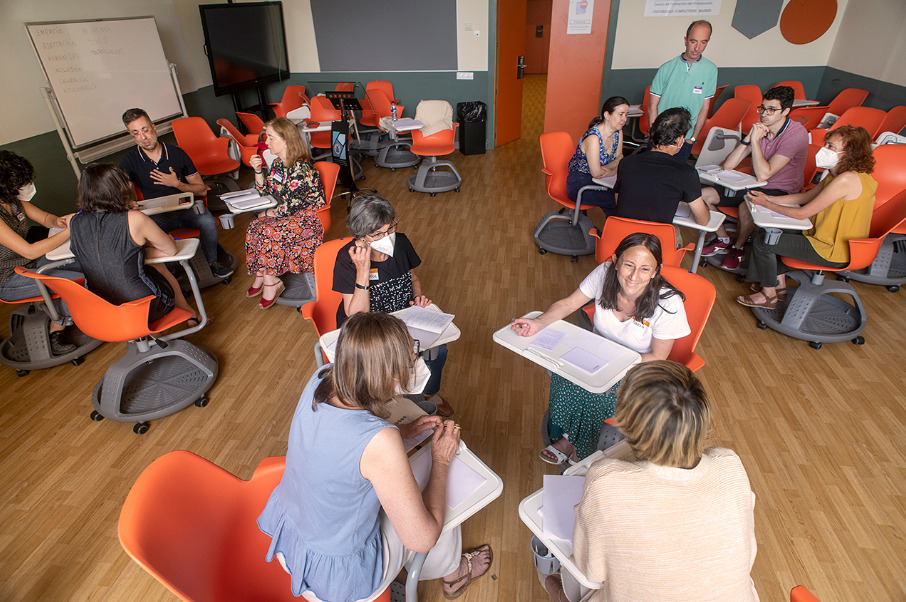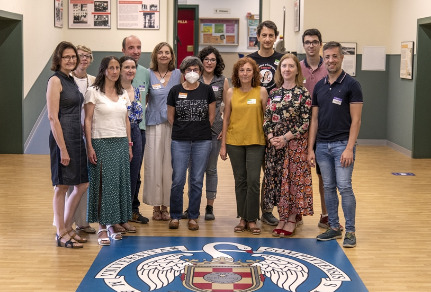The course is finishing and María, Marcos, Guadalupe, Alba, Juanma, Nuria, Concha, Rafaela, Sergio, Elvira, José María, Teresa and a second María have met in room 1525 of the Faculty of Education to talk about how they have done this year and see what they can improve from September. The truth is that these meetings are held once a month. In them they talk about how they are doing, their problems and also their successes, their concerns and even their certainties. They do it confidentially, as if they were with family, in search of other approaches, methodologies and even “tricks” that they can use in their classrooms. These thirteen people, in effect, are teachers. They are in very diverse degrees at the Complutense University, they have different ages, but a common characteristic: they want to be better teachers.
María Vega, professor in the Department of Research and Psychology in Education of the Faculty of Education, has been promoting the so-called “learning communities” for two decades. She says that in them she has learned more than she has taught, managing to create a “cultural legacy of shared knowledge”. In her book De Ella Creating learning communities at the University. A proposal for experiential training (Editorial Morata, 2020), she explains what these communities are like, how they work and what their objectives are. In the interview that she granted to Tribuna Complutense on the occasion of the publication of the book, Professor Vegapassionately explained what a teacher who participates in a learning community feels: “The basic idea is: live yourself, live yourself as a learner, know yourself as a learner and go to the classroom as one more learner who, together with others in a community with a common goal, we are going to learn about something that will help us solve problems in a different way . Is it a methodological change? It is a change of conceptions, a change of beliefs, of what a classroom is, of what a teacher-student relationship is, of what is the role that the content plays. So, once you have decided together with them, committed to that learning community, committed to the fact that we want transformational learning, which implies an intrinsic motivation, we are going to see that what we did before is not that it is not valid, it is that it is not enough. We must do something more and that is where reciprocal learning comes in, self-regulation or looking for natural contexts”.
In that interview with María Vega, the possibility of attending a session of one of these learning communities arose. A year and a half later, both parties fulfilled what was promised.
The thirteen teachers present in room 1525 of the Faculty of Education – some more who are part of the community have not been able to attend – take stock of what has been done this year, with the idea – that is the objective of today’s session – of see what improvements they can make in the next course sessions. Because, they are clear about that, they all want to continue being part of this community. The session was organized by Marcos and Guadalupe, both professors from the Faculty of Informatics. Marcos is the first to take the lead, although he immediately clarifies that his opinion has the same weight as that of the others. The first question to which he proposes to seek an answer is what has this academic year meant for each of us?
Without a break in continuity, Marcos poses the second question of the session: What has this teaching community given you this course? To work on the third question, which is the purpose of this session, Guadalupe takes the helm. He proposes a new dynamic: that of the six hats.



